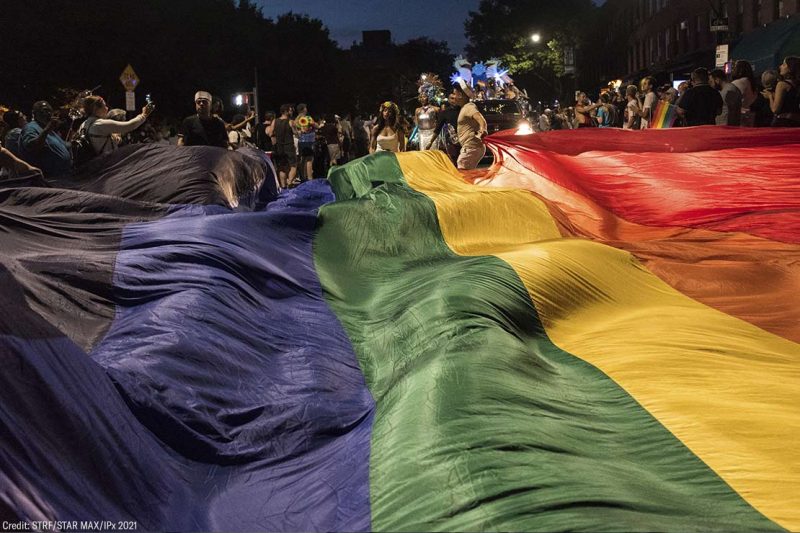Resilience, Liberation, and the Interconnectedness of Pride


As we enter Pride month, I am reflecting on the interconnectedness of our joy and our struggle.
I am struck by the fact that Pride and Immigrant Heritage month begin just as Asian American Pacific Islander (AAPI) and Jewish American Heritage Month end. Though Pride should be about our intersectional struggle for freedom, it has not always felt that way.
As I think about all the communities gathering virtually and in-person to celebrate the power and resilience of our queer communities, it’s essential to name what our trans, Asian and Pacific Islander, Indigenous, Jewish, Muslim, and Black communities in the U.S. might also be carrying into this month.
Over the last year, anti-trans bills swept through the country, targeting trans youth and athletes and impacting trans and non-binary individuals everywhere. As Chase Strangio reminds us, more anti-trans bills became law in 2021 than in the previous 10 years combined.
Throughout the last year and a half, our AAPI families and communities have experienced horrific acts of violence and harm, the most recent escalation of racism that has impacted AAPI communities across the United States.
In 2020 alone, Native Americans, Tribal, and Indigenous communities endured a devastating year highlighting the and inequities that Native communities have experienced for centuries. Yet another reminder of the original sin of the nation — colonization, white supremacy, and genocide that remain unaccounted for and unacknowledged to this day.
Over the last month, there has been a sharp rise in antisemitic rhetoric, desecration of sacred spaces and Jewish businesses, and assaults. These attacks are not new and are part of a long and devastating history of violence against Jewish people in the United States.
Our Muslim families and communities continue to experience Islamophobia that impacts their safety, places of worship, freedom of movement, and livelihoods in the U.S. Our Muslim communities experience this harm in every corner of our country — it is interpersonal, institutional, and systemic.
Our Black communities continue, daily, to experience state violence, institutional racism, and the impact of 400 years of white supremacy and anti-Black oppression.
These struggles, and so many more, are at the heart and purpose of Pride. If Marsha and Sylvia taught us anything, it’s that if Pride doesn’t include all of us, it doesn’t hold meaning for any of us. If we’re not marching for our collective liberation, we might as well not march at all.
Pride is our fight for racial justice.
Pride is the end of anti-Asian violence and racism.
Pride is speaking up against antisemitism, putting our bodies in front of xenophobia, and demanding justice and peace for our Muslim siblings.
Pride is denouncing colonization and honoring the original inhabitants of this land.
Pride is disability justice, fat liberation, and a love letter to Black femmes who continue to build movements of self-care and bodily autonomy.
Pride is decriminalizing sex work, stopping the war on drugs, and ending the over-policing of our communities.
Pride is an end to mass incarceration and a fight against institutionalizing our communities.
Pride is protecting trans youth and uplifting trans and non-binary leadership.
Pride is not just “love is love,” Pride is liberation is liberation.
This year, as our parties and celebrations reemerge, we have a chance to build on the sacred legacy with which we’ve been gifted. Dance in the streets, march with joy, and never stop fighting.

